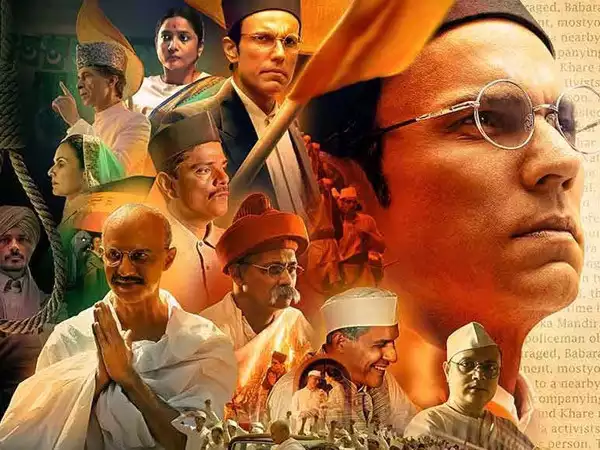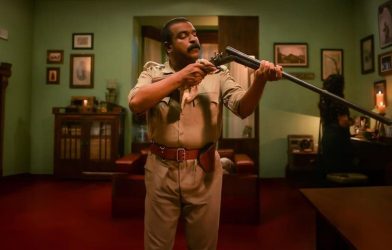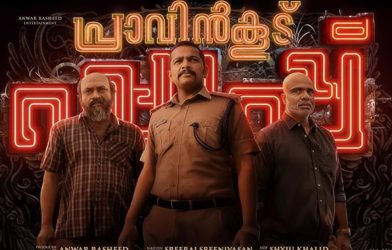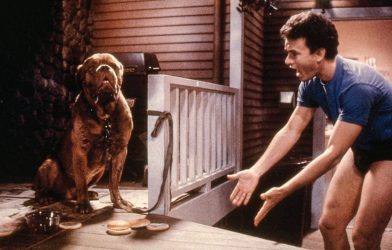3.0 / 5
Swatantra Veer Savarkar is a biopic of Vinayak Damodar Savarkar. In debutant director Randeep Hooda’s vision, Savarkar has been set up as a mastermind of sorts who influenced the armed revolutionaries. Everyone from Madanlal Dhingra, to Khudiram Bose to even Bhagat Singh and Netaji Subhas Chandra Bose were seemingly shaped by Savarkar’s influence to become warriors for the motherland. The film features a scene in which Bhagat Singh meets Savarkar, an incident that doesn’t have any historical truth in it. It also states that Netaji Subhas Chandra Bose sought his guidance and that he helped Bose find footing in Germany. There is no evidence of this either and Netaji’s grandnephew Chandra Kumar Bose himself has time and again said that something like this never happened.
In the present narrative, Savarkar has been set up as a bigger and better leader than Mahatma Gandhi. He’s made out to be a person who made the British quake in their boots. While Gandhi comes across as a weak man, bent on British appeasement, Savarkar is shown as a decisive figure who would have won us independence in the 1910s itself if he had his way. The moral fortitude of the Mahatma, his policies of non-violence, and compassion even to one’s enemies, are laughed at in the film. What’s shocking is that it’s hinted that Congress might have had a hand in Gandhi’s assassination, which was carried out by a member of Hindu Mahasabha, Nathuram Godse, whom history tells us was close to Savarkar, the chief leader of the organisation. At this point you stop believing in the seriousness of the film.
Savarkar went to England to be a barrister and there, along with members of Free India Society, like P.M. Bapat, V.V.S. Aiyar, Madanlal Dhingra, and V.N. Chatterjee espoused hardline views opposing British Raj and even took to smuggling arms to India. After his arrest in London and his botched attempt at jumping ship off the coast of Marseilles, he was sent to Kaalapani prison in the Andamans in 1911, where he was sentenced to serve two life sentences. He repeatedly petitioned the British for his release, and was finally sent back to India in 1921, and was imprisoned at the Ratnagiri jail. Later, he was given a full pardon and got out of jail in 1924 on the condition that he’ll not be allowed to leave Ratnagiri and take part in politics, which he agreed to. He became a social reformer and rallied against the caste system. Ironically, someone who mocked Gandhi’s method of fasting to bring out reforms, himself fasted to death in 1966. A man believing in ahimsa met his end at the hands of violence while a man believing in violence sought non-violent means to end his life.
The film is shot in a linear progression and the director’s insistence on putting everything in the narrative begins to take its toll. At three hours, the film is too long and could have been done with some trimming. While the production design and costume design are spot on, the direction falters at times. There are too many close-ups, too many branches of the fourth wall. The whole thing feels like a play at times.
Amit Sial shines as Ganesh Damodar Savarkar, the elder brother who never got his due in the history. British actor Russell Geoffrey Banks is impressive as the jailor David Barry, who loved reigning atrocities at the prisoners. Ankita Lokhande plays the role of Yamunabai Savarkar, Savarkar’s wife, and doesn’t have much to do, as the focus is totally on the male protagonist. The film’s onus falls on Randeep Hooda. Leaving aside the faulty direction and the liberty taken with history, his commitment as an actor to his debut film as a director can’t be questioned. Randeep Hooda has given his all to the film. He reportedly lost some 30 kgs to get into the gaunt frame of Savarkar. He’s the very image of the fierce Hindutva crusader, eyes burning with the sacred light of his cause, blindingly convinced that his is only the right way. You get to see the controversial leader in the flesh through Hooda’s performance.
Watch the film for the masterclass in acting presented by Randeep Hooda, who needs to find a better hold over his skills as a director.









